Early Childhood Care and Education (ECCE) for Children 3-6 Year Olds
A Sub-Stage within the Foundational Stage
The Context
It is now universally acknowledged that early childhood is the most crucial period in human development. There is no other time in human life when so much is learned in so brief a period. In India, this awareness is reflected in the large-scale government and private efforts to run balwadis, anganwadis (pre-school centers) and pre-primary schools. However, as the ASER Report 2018 indicates, almost one-third of our 3-6 year olds are not attending any such Early Childhood Care and Education (ECCE) programmes. It is also well known that even those who do attend are not exposed to the sound educational experiences which promote their holistic development and prepare them for school entry and lifelong learning.
The India Early Childhood Education Impact (IECEI) longitudinal study indicates that children who were exposed to high-quality ECCE were more ‘school ready’, and that building children’s cognitive, pre-literacy and pre-numeracy skills during the ECCE stage improves their learning outcomes in early primary classes.
In the NEP 2020 and its Action Guidelines, a major focus has been given to ECCE for the 3-6 years age group, as a sub-stage within the newly formulated Foundational Stage. CLR has been providing technical support in this field for almost 4 decades, as we believe that high-quality ECCE is crucial for the optimal development and school readiness of our most vulnerable children, and remains the only avenue at present to combat the early onset of social disadvantage and exclusion in our country.
We continue to partner with state and district-level government agencies, like-minded NGOs and institutions, to provide technical support of high quality within large-scale ICDS interventions and other pre-primary programmes of NGOs and schools.
What CLR Offers
- Ongoing professional development of teacher trainers, integrating child development principles and early learning theory with ECE practice; supporting all levels of a cascade model of training to reach large numbers of anganwadi workers and pre-primary teachers
- Provision of audio-visual training materials, consisting of print modules, videos and digital components in various Indian languages
- Developmentally appropriate ECE curriculum, for varied local contexts, incorporating the following key domains:
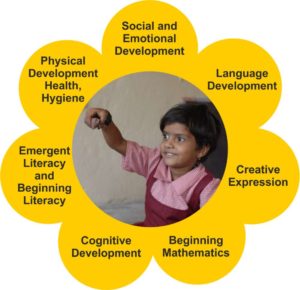
- Activity-based, experiential pedagogy, allowing for children’s initiative, interaction, problem-solving, etc
- Provision of a low-cost ECCE kit of playful, teaching-learning materials, with a simple guidebook for anganwadi workers and teachers. Guidance in developing teacher-prepared materials relating to children’s immediate socio-cultural and natural environment
- Mentoring support for ground-level workers/teachers
- Monitoring and assessment of processes and outcomes
- Strategies for involvement of parents and local communities, including local panchayats, NGOs, CBOs, SHGs, etc.
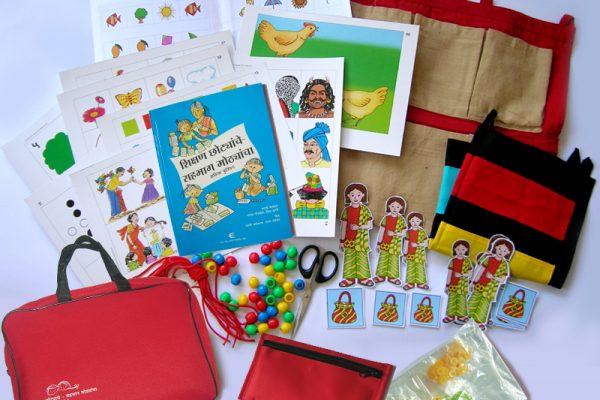
Perspective building on the significance of ECCE and motivational inputs for leadership and administrative cadres within ECCE programmes is an important focus in our comprehensive approach
Examples Of CLR Projects And Capacity Building Programmes
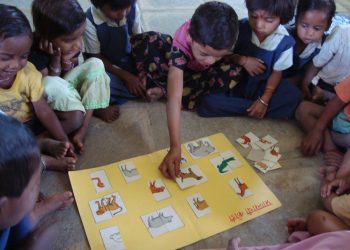
Strengthening the Pre-school Component in ICDS Anganwadis of Dharni Block, Amravati District, Maharashtra
CLR worked with 250 ICDS anganwadis in Dharni Block of Amravati District for over five years with the aim of bringing about sustainable good quality Early Childhood Education. A multilingual approach was an important feature, as the tribal home language, Korku…
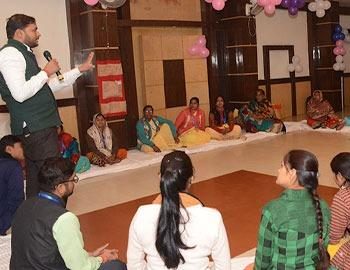
ECCE in ICDS Anganwadis in Lucknow
CLR is involved in strengthening ECCE services in 15 ICDS Anganwadis in Lucknow city. We train and support the anganwadi workers (AWWs) to provide good quality ECCE in their centres, through implementation of the CLR holistic,…
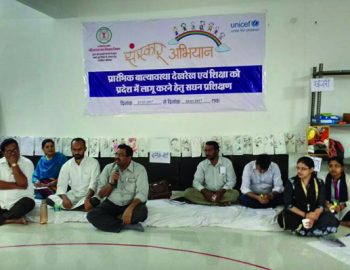
Sanskar Abhiyan: State-wide ECCE Roll Out in Chhattisgarh
CLR played a significant role as a resource agency for ICDS, Chhattisgarh in the implementation of Sanskar Abhiyan (SA), a state-wide implementation of ECCE in Chhattisgarh. SA was initiated by the government of Chhattisgarh…
Examples of Organisations Accessing CLR Capacity Building Programmes and Materials over the Years
- ICDS, Maharashtra, Chattisgarh, UP and Karnataka
- Forbes Marshall Foundation, Pune
- Jindal South West Foundation, Thane, Maharashtra
- Aga Khan Education Services , Gujarat
- PLAN International Project Units in several states
- BRAC, Bangladesh
- PLAN, Nepal
- PLAN, Indonesia
